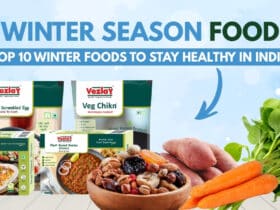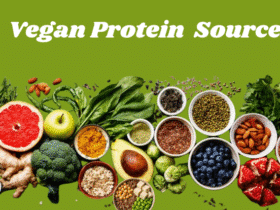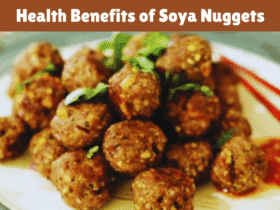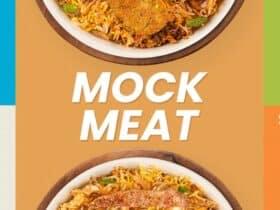Introduction
Veganism has gained significant popularity in recent years, as more people become aware of the environmental, ethical, and health benefits associated with a plant-based lifestyle. However, like any movement, veganism is not immune to misconceptions and myths. In this article, we aim to address some of the most common misconceptions about vegan food and provide a more accurate understanding of what it means to follow a vegan diet.
Misconception: Vegans can't get enough protein.
One of the most prevalent misconceptions about veganism is the belief that it’s impossible to meet protein requirements on a plant-based diet. In reality, there are plenty of plant-based sources of protein, including beans, lentils, tofu, tempeh, quinoa, and nuts. Many athletes and bodybuilders are vegans, demonstrating that it is indeed possible to build and maintain muscle on a vegan diet. By incorporating a variety of these protein sources into their meals, vegans can easily meet their protein needs.
Misconception: Vegans are always hungry.
Some people think that vegans must constantly feel hungry because their diet lacks animal products. However, a well-balanced vegan diet can be just as satiating as a non-vegan one. Foods like fruits, vegetables, whole grains, and legumes are packed with fiber and nutrients that help keep you full and satisfied. Vegan meals can be delicious and filling, thanks to the creative use of spices, herbs, and diverse ingredients.
Also Check :- Vezlay Soya Chaap
Misconception: Vegans lack essential nutrients.
It’s often assumed that vegans miss out on essential nutrients such as calcium, iron, and vitamin B12. While it’s true that these nutrients are more commonly found in animal products, there are plenty of plant-based sources and fortified foods available. For example, calcium can be obtained from fortified plant-based milk, leafy greens, and tofu. Iron can be found in beans, lentils, and fortified cereals. And vitamin B12, which is not naturally present in plant foods, can be easily supplemented or found in fortified foods like nutritional yeast.
Misconception: Vegan food is bland and boring.
Many people believe that vegan food is tasteless and consists only of salads and plain tofu. In reality, the vegan culinary world is incredibly diverse and creative. Vegan chefs and home cooks around the world experiment with a wide array of flavors, spices, and ingredients to create exciting dishes. From mouthwatering veggie burgers to creamy vegan ice creams, there’s a vegan version of almost any dish you can imagine. Vegan food is far from bland, and the possibilities are endless.
Misconception: Veganism is an all-or-nothing commitment.
Some people think that you have to be 100% vegan to make a positive impact on the environment and animal welfare. While full veganism is ideal, any reduction in the consumption of animal products can make a significant difference. Some individuals choose to be “flexitarians” or “reducetarians,” reducing their meat and dairy consumption without completely eliminating them. Every small step towards a more plant-based diet contributes to the greater goal of reducing animal suffering and environmental harm.
Misconception: Vegans can't enjoy desserts.
Some people believe that desserts and sweet treats are off-limits for vegans because they typically contain eggs and dairy. However, there are countless vegan-friendly dessert options available. You can indulge in vegan ice creams, cakes, cookies, and even rich chocolate without any animal products. Plant-based ingredients like coconut milk, almond milk, and aquafaba (chickpea brine) can be used as substitutes to create delectable sweets.
Misconception: Veganism is too expensive.
It’s a common misconception that a vegan diet is cost-prohibitive. While some specialty vegan products can be pricey, many staple vegan foods are actually more affordable than their animal-based counterparts. Items like grains, beans, lentils, and seasonal fruits and vegetables are typically budget-friendly. Cooking at home and planning your meals can help you save money on a vegan diet.
Misconception: Vegans can't dine out.
Some people think that being vegan means you can’t enjoy dining out at restaurants. While it’s true that not all eateries offer vegan options, many restaurants now have vegan-friendly menus or can accommodate vegan requests. Additionally, various apps and websites can help you find vegan-friendly restaurants and even provide reviews from fellow vegans.
Misconception: Vegans only eat salad.
Another common stereotype is that all vegans eat is salad. While salads are indeed a healthy and delicious option, the vegan diet is so much more diverse. Vegans enjoy a wide range of dishes, including pasta, stir-fries, burritos, sushi, pizza, and more. The possibilities are virtually limitless, and vegans can savor a rich variety of cuisines from around the world.
Also Check:- What is Chaap
Misconception: Vegan food lacks flavor.
Some people wrongly assume that vegan food is bland and lacks the depth of flavor found in non-vegan dishes. In reality, vegan cuisine is bursting with flavor, thanks to the creative use of herbs, spices, and flavorful ingredients. Plant-based dishes can be just as aromatic and tasty as any other, and the absence of animal products doesn’t diminish their deliciousness.
Conclusion
In conclusion, the world of veganism is often shrouded in misconceptions, but a closer look reveals a diverse and flavorful reality. From debunking the belief that vegans can’t get enough protein to dispelling the myth that they are perpetually hungry, it’s clear that a well-balanced vegan diet can be both satisfying and nutritious. Vegans are not deprived of essential nutrients; instead, they have a variety of plant-based sources and fortified foods at their disposal. The assumption that vegan food is bland couldn’t be further from the truth, as it boasts a rich tapestry of flavors, thanks to creative culinary exploration.
Moreover, it’s important to recognize that veganism doesn’t have to be an all-or-nothing commitment. Even small steps towards reducing animal product consumption can contribute to the broader goal of promoting environmental sustainability and animal welfare. Vegan-friendly desserts and budget-friendly options are readily available, making veganism accessible to a wide range of individuals. Dining out as a vegan is also more feasible than some might think, with many restaurants offering vegan choices and helpful resources for finding them.
In the end, the misconception that all vegans eat is salad is far from reality. The vegan diet is incredibly versatile, encompassing an array of dishes from around the world, ensuring that vegans can enjoy a delicious and diverse range of cuisines. The idea that vegan food lacks flavor is thoroughly debunked by the abundant use of herbs, spices, and savory ingredients that bring an explosion of tastes to every plant-based plate. Veganism, far from being restrictive, is a world of exciting culinary exploration, healthful choices, and a conscientious approach to our planet and its inhabitants.












Leave a Reply